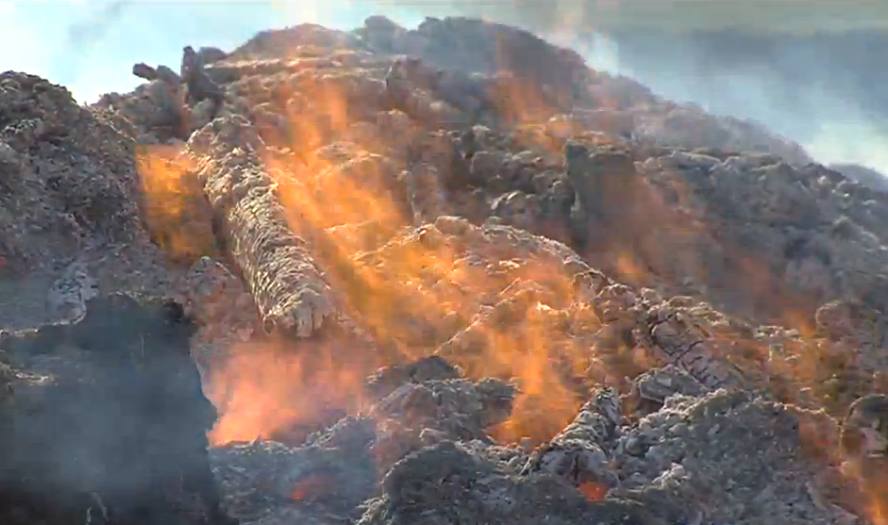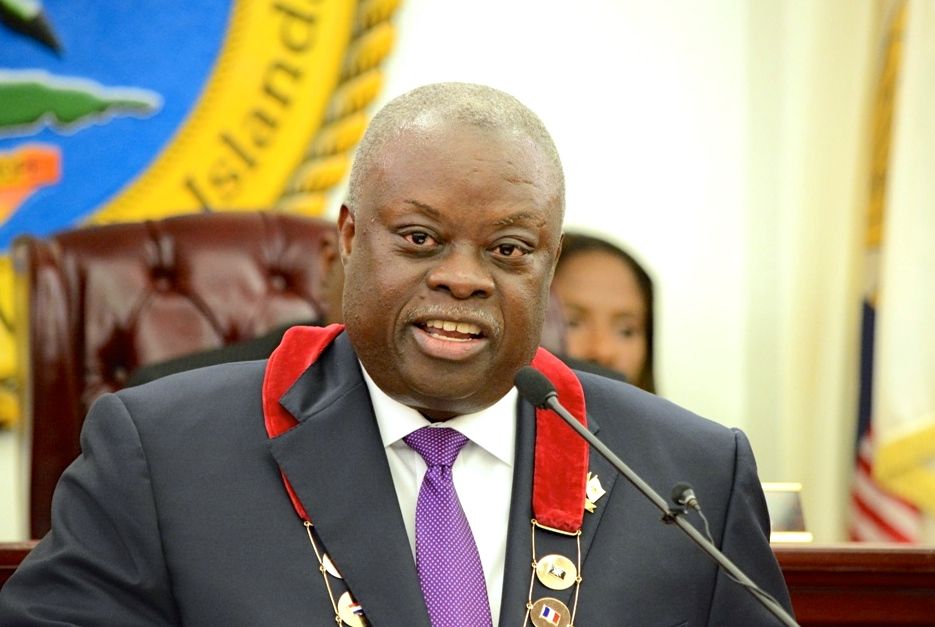CHARLOTTE AMALIE — Gov. Kenneth Mapp said Monday night he will give the orders to the U.S. Army Corps of Engineers to burn 35 percent of hurricane tree and plant debris by incineration — because it will be faster and cheaper.
Mapp said native hardwood trees such as mahogany trees would be sorted out of the debris and turned over the local wood workers and artisans.
The governor said that there is 1.3 million cubic yards of hurricane debris in the Virgin Islands and after white waste (appliances), metal and other types of waste are sorted out and shipped off island, about 700 million cubic yards of tree and plant debris will remain behind.
“Of the remaining vegitation, 65 percent of this material we are going to work with our federal partners for chipping and composting,” he said. “The remaining 35 percent of it will be incinerated.”
As the territory struggles to recover from Hurricanes Maria and Irma, a coalition of environmental groups and health experts have come out in strong opposition to a proposal to burn hundreds of thousands of cubic yards of downed trees and other vegetation in open air incinerators.
The groups say it would further exacerbate health disparities in the predominantly black population where nearly one in four people lives below the federal poverty line.
The Virgin Islands Legislature passed legislation to ban the proposed burn on Friday, and the Sierra Club and other environmental groups have threatened to sue the U.S. Army Corps of Engineers and the Federal Emergency Management Agency if they go ahead with the incineration plan.
Those opposed say the islands’ 100,000 residents are already choking on exhaust from diesel generators that are now pervasive across the territory, where more than half the population lacks electricity. They are instead arguing for composting of the debris, some 400,000 cubic yardson the Island of St. Croix alone, and using the compost to enrich eroded soil depleted by the storms.
The decision on whether to burn or compost is up to Mapp, who must now decide whether to sign the legislation into law.
Incineration has been estimated to cost about $5.19 million, compared to $5.3 million for mulching and $7.1 million for composting, according to Harith Wickrema, president of the Island Green Living Association, which has threatened to sue over the incineration plan.
Opponents of burning say FEMA and the Army Corps advised the governor to burn the debris and offered financing that favors incineration over composting.
“If it was a community that was not of color, I think the factors for this decision would have been handled with much more sensitivity,” said Sen. Myron Jackson, the Senate President, who sponsored the bill to ban incineration.
Past Problems with Incineration
The U.S. Army Corps and FEMA have proposed using air curtain incinerators, large metal bins with blowers that facilitate hotter, more complete burning.
The Army Corps planned to use the same open-air incinerators for three to four months at Floyd Bennett Field in Brooklyn, New York, after Hurricane Sandy but aborted the effort after one month.
The decision to stop burning was in part because the devices violated air quality standards, according to Judith Enck, a former Environmental Protection Agency Administrator for Region 2, which includes New York and the Virgin Islands.
“It’s completely unnecessary to be burning in the U.S. Virgin Islands when we have a viable composting alternative and also when the operation of these air curtain incinerators will pose such an air quality risk,” Enck said.
To read more:


